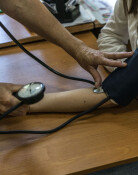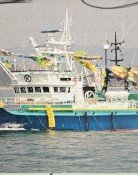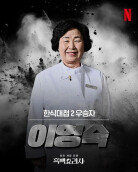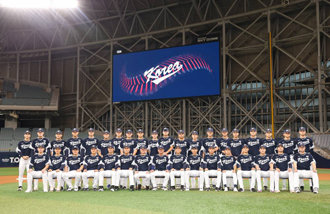[Opinion] Niigatas Tear
Niigata is the biggest port in Japan that borders the East Sea. It was a center in the route connecting the Japan Islands, Korea, Manchuria, and Russias Maritime Provinces in Siberia during the early 20th century when Japanese militarism invaded the Asian mainland. After the liberation of Japanese colonial rule, it served as a port for ships that sent Korean-Japanese to North Korea. Now, it has continued its relationship with the Korean Peninsula by becoming a base for trading between North Korea and Japan. From the point of view of North Korea, which depends greatly on the money and aid provided by the General Association of Korean Residents in Japan (GAKRJ), this city is like a lifeline. Whenever tension with North Korea heightens due to issues such as kidnapping of Japanese, right wing Japanese gather in Niigata from all over Japan to hold demonstrations against the entrance of the North Korean ship, Mangyeongbong-ho.
After a long tunnel across the border, there was a snow land. This is the description of Niigatas countryside in Snow Land, a novel that won the 1968 Nobel Prize in Literature. It is famous that the writer, Yasunari Kawabata, stayed in a mountain area in southern Niigata to write the novel using the place as the background of his novel. The rice produced in this area is called Koshihikari and is well known for its delicious taste because it is cultivated using fresh water melted from snow. Japanese winos consider rice wines produced in this area, such as Kubota and Hatkaijan, the highest quality rice wines available.
There were over 100,000 victims of the recent strong earthquake in Niigata. Since experts have considered mountain areas on the opposite side of the Pacific safe, paying attention to only big cities adjacent to the sea, the shock in Japan is even bigger. A mother and her son were found dead and buried, holding each other tightly, and a two-month old infant died while feeding at its mothers breast, and so many other heartbreaking stories.
The earthquake in Niigata is a typical disaster. Desperate residents who have lost everything look staggered despite visits by the prime minister and other congress members. We realize that it is always devastating whether the disaster is caused by human mistakes or by nature. We should share their pain as their neighbor and at the same time, we need to check carefully if our peninsula, right across the sea from Japan, is truly safe from earthquakes. We should not pass carelessly the fact that the force of the Niigata earthquake exceeded 6.5, the design criteria set as earthquake-proof by Korea nuclear power.
Park Won-jae, Tokyo correspondent, parkwj@donga.com
Headline News
- Pres. Yoon addresses the nation at a press conference
- LX Group chairman gifts 100 million won to employee family welcoming quadruplets
- Tax-exempt shared offices in rural areas misused as tax havens
- President-Elect Trump promises 'peace through strength'
- French gambler wins 67.2 billion won by betting on Trump’s election win







